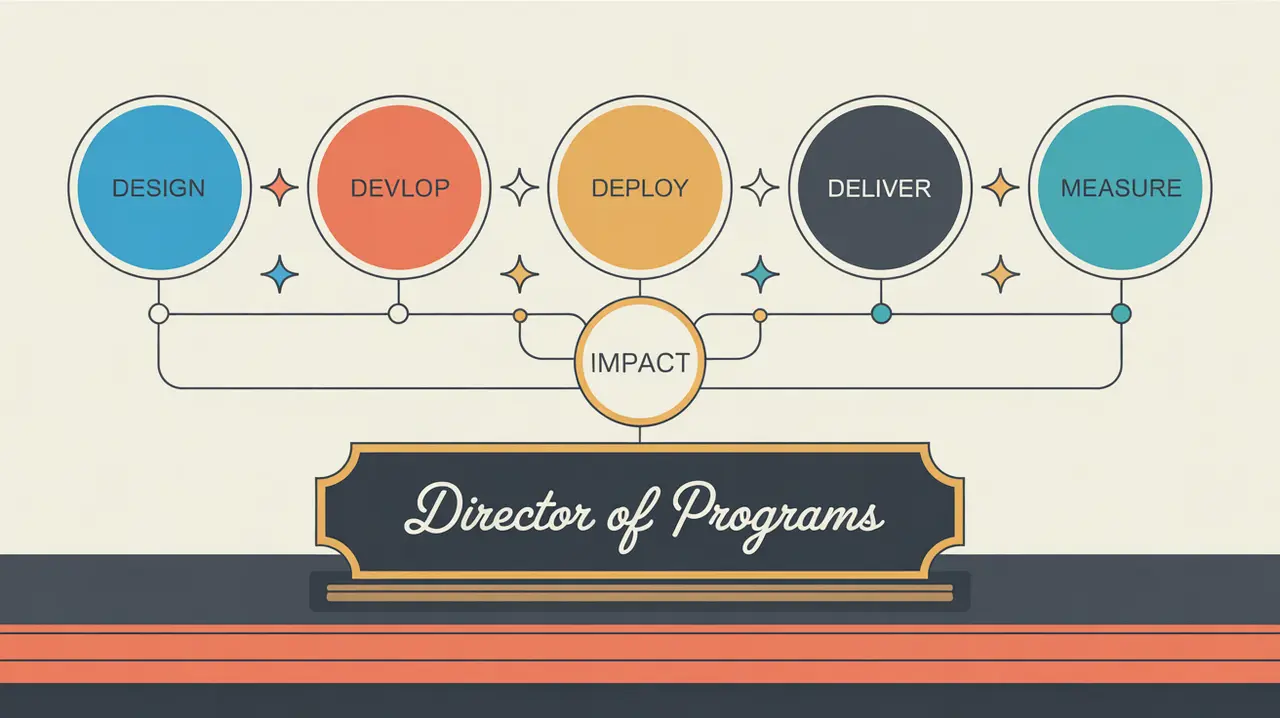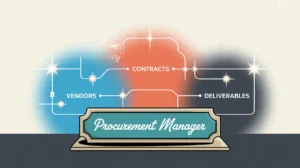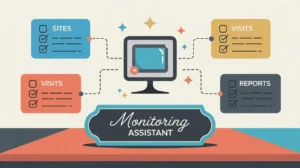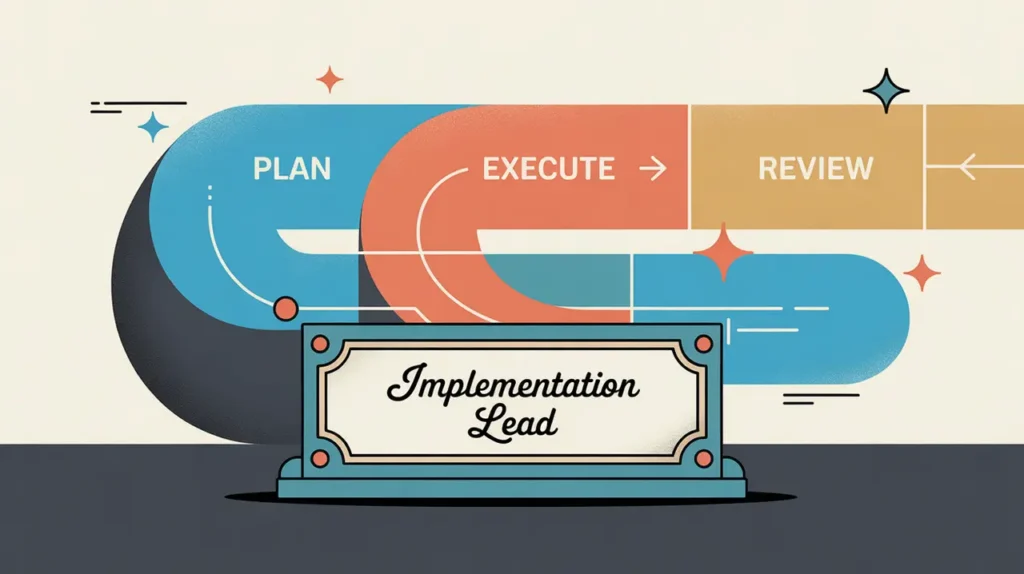What Does the Director of Programs Role Involve?
A director of programs is responsible for providing strategic leadership and oversight for the organization’s program portfolio to ensure it delivers high-quality, mission-aligned impact. This involves setting programmatic strategies, managing program teams, overseeing design and implementation, ensuring alignment with organizational goals, and maintaining strong relationships with partners, funders, and stakeholders. The role typically sits within the executive function and works closely with the chief program officer, chief executive officer, and cross-functional teams such as finance, monitoring and evaluation, and operations. In both nonprofits and social enterprises, directors of programs play a central role in translating mission into practice through effective program design, delivery, and learning.
At What Level does this Role Operate?
Executive Level: This role typically reports to the chief program officer or chief executive officer. It involves setting program strategies, leading cross-functional teams, managing program portfolios and budgets, and advising leadership on program performance, opportunities, and risks.
Relative Employability: Director of programs roles are consistently in demand across nonprofits, social enterprises, philanthropic organizations, and international NGOs. As organizations grow in scale and complexity, the need for strong programmatic leadership to ensure quality, impact, and strategic coherence becomes critical.
Relative Pay Scale: Within nonprofits and social enterprises, director of programs roles sit in the executive pay bands, reflecting their strategic importance, leadership responsibilities, and centrality to mission delivery.
What are the Key Responsibilities and Activities?
- Develop and lead the organization’s programmatic strategy, ensuring alignment with mission and strategic priorities
- Oversee the design, implementation, and evaluation of programs to ensure quality, effectiveness, and measurable impact
- Manage program teams, providing leadership, capacity building, and performance oversight
- Coordinate with finance, operations, and other teams to align resources and systems with program needs
- Build and maintain strong relationships with funders, partners, government agencies, and community stakeholders
- Monitor program performance, risks, and opportunities, reporting to leadership and boards as required
- Identify emerging trends, innovation opportunities, and best practices to strengthen program approaches
- Oversee program budgets, compliance, and reporting requirements to funders and regulators
- Foster a culture of learning and adaptive management within program teams
What Core Competencies and Qualifications are Needed?
Required Qualifications and Experience
The following reflect common qualifications and experience expected for this role, while recognizing that pathways may vary by context, organization, and region.
- Relevant academic background in public administration, international development, social sciences, education, or a related field, or equivalent professional experience
- Extensive experience in program leadership roles, including strategy development, implementation oversight, and evaluation
- Strong understanding of program design, monitoring and evaluation frameworks, and partnership development
- Proven ability to lead teams, manage complex portfolios, and advise leadership on program strategy
- Excellent strategic thinking, relationship building, and communication skills
Key Competencies
- Program strategy and leadership
- Program design, implementation, and evaluation
- Cross-functional coordination and resource alignment
- Stakeholder engagement and partnership management
- Risk management and adaptive learning
- Budget oversight and compliance
How are AI and Automation Shaping this Role?
An AI-native director of programs will look to AI and automation to strengthen program design, delivery, and evaluation. They can use AI tools to analyze data on program performance, identify trends, model scenarios, and inform strategic decisions. Automation can streamline reporting, compliance tracking, and coordination across teams, enabling program leaders to focus on innovation, quality, and impact. By integrating AI thoughtfully, directors of programs can make programmatic operations more responsive, evidence-informed, and strategically aligned.
What Career Pathways and Transferable Skills are Associated with this Role?
Director of programs roles can lead to positions such as chief program officer, chief strategy officer, or other senior executive roles. The skills developed in program strategy, team leadership, partnership development, and adaptive management are highly transferable across nonprofits, social enterprises, philanthropic institutions, government agencies, and international organizations. This role provides a strong platform for advancing into top leadership positions focused on impact and strategy.







